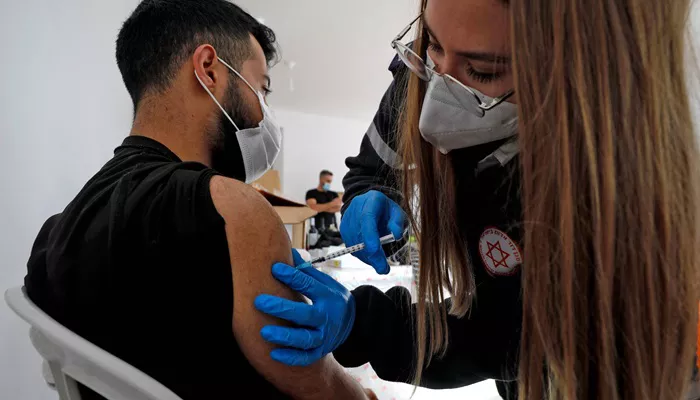Myocarditis is a condition characterized by inflammation of the heart muscle. This inflammation can lead to chest pain and shortness of breath. In severe cases, myocarditis can weaken the heart, increasing the risk of blood clots, strokes, or heart attacks. While myocarditis is a rare but serious side effect of mRNA COVID-19 vaccines, particularly in young men, it is also associated with COVID-19 infections.
A recent report published in the Journal of the American Medical Association examined the outcomes for patients hospitalized with myocarditis after vaccination, those who developed myocarditis following COVID-19 infection, and conventional cases of myocarditis.
The study monitored patients for 18 months after their initial hospitalization.
Key Findings of The Study
The researchers discovered that patients who experienced myocarditis after vaccination were significantly less likely to be rehospitalized or suffer from other cardiovascular complications compared to those who developed the condition from a COVID-19 infection. The complications observed in vaccinated patients were similar to those seen in conventional myocarditis cases. These findings align with previous studies that indicated post-vaccine myocarditis is less severe than myocarditis caused by COVID-19 infection.
Based on their research, the authors concluded that patients with post-vaccine myocarditis “have a lower frequency of cardiovascular complications” than those who develop myocarditis from COVID-19 infection or other conventional causes.
However, they emphasized that patients with post-vaccine myocarditis still require monitoring. The study authors noted that these considerations should be factored into ongoing and future recommendations for mRNA vaccines. Last week, the FDA approved updated COVID-19 vaccines from Pfizer and Moderna to protect against currently circulating variants ahead of the fall and winter respiratory virus season.
Context of The Research
The study highlights the importance of understanding the risks associated with myocarditis in different contexts. While myocarditis can occur as a side effect of vaccination, the risk of developing myocarditis from a COVID-19 infection is significantly higher.
Dr. Nisha Parikh, director of the Women’s Heart Program at Northwell Health, commented on the significance of the study.
She noted that sleep disorders and sleep deprivation are linked to various cardiometabolic diseases, including hypertension and cardiovascular diseases.
Implications for Public Health
The findings from this study are particularly relevant as vaccination efforts continue globally. Understanding the comparative risks of myocarditis from vaccination versus COVID-19 infection can help inform public health strategies.
Dr. Zechen Liu, a co-author of the study, stated, “Our results show that for the significant proportion of the population suffering from sleep deprivation, those who have the most ‘catch-up’ sleep at weekends have significantly lower rates of heart disease than those with the least.” This underscores the need for continued research into the long-term effects of both vaccination and COVID-19 infection on heart health.
Additional Research Findings
On the same day, researchers from Denmark presented findings at the ESC Congress indicating that women with endometriosis face a 20% higher risk of heart attack and stroke compared to women without the condition. Endometriosis affects more than 6.5 million women in the U.S. and occurs when tissue similar to the uterine lining grows outside the uterus.
Moreover, men with coronary artery disease can reduce their risk of major heart incidents by nearly half by quitting smoking. Researchers emphasized that merely cutting back on cigarettes is not sufficient to make a significant impact.
Conclusion
The study reinforces the notion that while myocarditis is a potential side effect of COVID-19 vaccination, the risks associated with myocarditis from COVID-19 infection are significantly greater. As vaccination campaigns continue, it is crucial to communicate these risks effectively to the public. Understanding the relationship between vaccination and myocarditis can help guide informed decisions and promote overall heart health.


